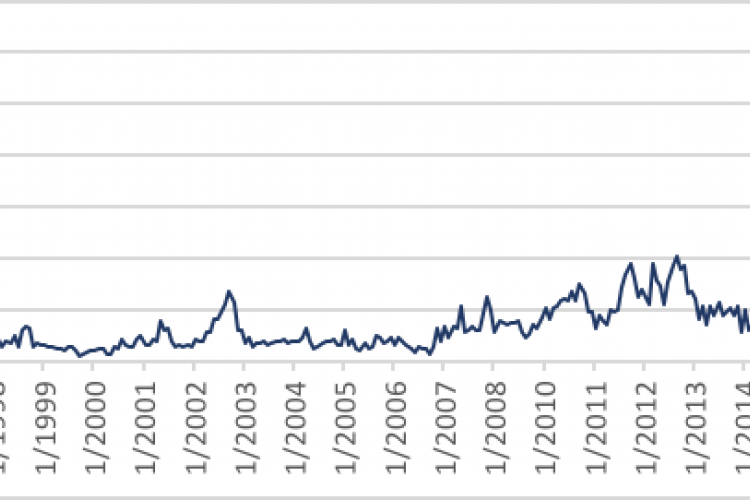Since the Brexit referendum last June, economic fundamentals have defied expectations of a sharp slowdown. Despite considerable policy uncertainty, consumer spending remained buoyant, industrial activity and business investment held up well. Remarkably, the uncertainties surrounding the post-Brexit shape of UK’s relations with the EU appear to have limited measurable impact. The index of economic policy uncertainty, which measures the variance in economic forecasts and the frequency of key words in news articles, has declined to pre-Brexit referendum levels.
Underneath this relatively benign macro picture, however, there are worrying signs. The depreciated Sterling is stoking inflationary pressures. Wages have declined in real terms. The housing market has been showing increasing signs of weakness. Economic confidence indicators have been falling. Importantly, despite rising inflation, long-term government bond yields have been falling. Equity market strength reflects the improved competitive position of companies that benefit from weaker sterling, rather than real growth potential.
In many ways, it can be argued that the UK equity market is already pricing-in a “hard” (or complete) Brexit, rather than a scenario, where Britain retains partial access to the Single Market. If this is indeed the case, it is tempting to think that once Brexit negotiations begin, any compromises would be positively received by the markets.
Taking a constructive view on the UK economic outlook presupposes that policy-making will continue within a well-managed framework. This is far from clear. As the general election campaign is demonstrating, political parties are no longer anchored by a consistent set of principles. The left’s Labour party is torn between Corbynistas with no elementary understanding of economics, and more market-friendly pragmatists, whose message no longer resonates with voters. Similarly, on the right, the Conservative manifesto short on details and long on slogans. Strangely, it also includes policy proposals on energy pricing that the Conservatives themselves described as Marxist two years ago. The centrist Liberal Democrats, meanwhile, have no coherent agenda item other than opposing Brexit.
Against this background, we are tempted to think that Britain’s main challenge is no longer its ability to reach a favourable deal with the EU. Rather, the challenge is the ability of the political parties to shape any coherent set of policies at all. As George H.W. Bush might have said, everyone has a problem with “the vision thing.”
What does all of this mean to investors? The UK equity market represents almost a 30% of the standard benchmarks of European equities. The constituent companies, however, tend to be the larger ones that are also represented in the FTSE 100 index, rather than the FTSE 250 index. This difference is important. The large capitalisation UK companies tend to include large global banks, oil and gas, basic materials and other global companies whose fortunes are not only tied to the UK economy, but the global economy as a whole. The sector distribution of the smaller companies represented by the FTSE 250 Index tends to be more geared towards the domestic economy.
With this in mind, we are not concerned by the implications of the UK elections for our overweight allocation to European equities. Larger UK companies are well placed to continue performing well, if the pound remains weak due to a “hard” Brexit. At the same time, if a bruised Tory majority is forced to make large compromises with other parties leading to a “soft” Brexit, UK exporters can also continue to perform well. Under both scenarios, however, domestically focussed-companies are likely to struggle. Regardless of the shape of Britain’s next government, a coherent and effective domestic policy agenda is unlikely.
- Log in to post comments

